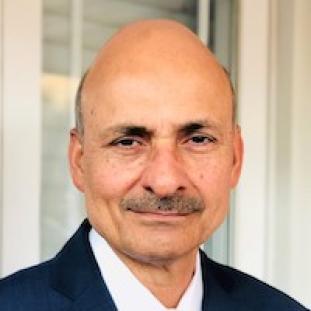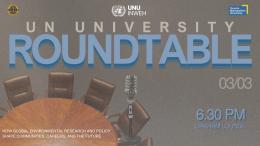Achieving Sustainable Development Goal 6 (SDG 6) by 2030 is expected to allow countries to reach an important milestone in their journey towards sustainability as successful water and sanitation management will be a foundation for the achievement of many other water-related SDGs directly or indirectly. Indeed, ensuring sustainable water and sanitation management for all is a challenge for many countries. Yet evidence and relevant data on SDG 6 for policy and decision-makers to make this happen are still missing, overlapping, or fragmented in several countries as the urgency for action is set to grow in the next years. There is also a renewed call by the United Nations (UN) for critical steps in support of the timely achievement of the 2030 Agenda for Sustainable Development under the 'Decade of Action to deliver the Global Goals.'
Against this background, strengthening and realigning the enabling environment for SDG 6 to drive successful implementation of policies is critical, as reliable evidence can support countries with a systematic approach to achieving SDG 6. Making the right policy decisions in the SDG era can be quite complicated, requiring organizations from different sectors to assess and combine evidence on targets and indicators and work together to develop better water and sanitation policies. For this reason, countries need to evaluate their strengths and weaknesses, missing data, gaps, and opportunities if they aim to achieve SDG 6 by 2030.
Since 2016, a consortium of partners (United Nations Office for Sustainable Development, UNOSD; United Nations University Institute for Water, Environment and Health, UNU-INWEH; the Ministry of Environment of the Republic of Korea, MOE; and the Korea Environment Corporation, K-eco) has been implementing the project ‘Water in the World We Want' to investigate how countries can address critical evidence gaps and deliver better policies to achieve SDG 6. Two additional partners (UNESCO International Centre for Water Security and Sustainable Management, UNESCO i-WSSM; and the Korea Water Resources Corporation, K-water) joined the project in 2022.
The SDG 6 Policy Support System (SDG-PSS), the key output of this project, was developed during its first phase (2016-2018) to help create evidence on the enabling environment of SDG 6 at the national level in countries with limited or missing data. Five countries – Ghana, Tunisia, Pakistan, Costa Rica, and the Republic of Korea – implemented the first stones of the project in a ‘champion system’, in which one water-related policymaker and one water professional in each country were responsible for promoting the project and providing coordination for the development of the SDG-PSS, a web-based tool to help navigate limited data conditions, relying on trends, information, and broader estimates.
SDG-PSS consists of the following components: Capacity Assessment, Finance, Policy and Institutional Assessment, Gender Mainstreaming, Disaster Risk Reduction (DRR)/Resilience Mainstreaming, and Integrity. These components were chosen as they allow a better understanding of the enabling environment where water and sanitation policies are developed and implemented for achieving SDG 6. They were based on more than 20 well-established tools, processes, and practices already used by many countries. The questions proposed in the tool were discussed in the national workshops organized in five countries and went through discussions, resulting in a comprehensive revision process.
During the project's second phase (2018-2020), the tool was officially launched as an online platform and promoted during project-led workshops. Regional workshops were organized to extend the use of SDG-PSS in countries in Asia, Africa, and Latin America and the Caribbean regions through broader cooperation and continuous learning, resulting in further refinement of the SDG-PSS. In its final version, SDG-PSS permits answering the challenge of bringing data and information from multiple international and national tools and translating them into a 'fit-for-policy' evidence framework. SDG-PSS available in six languages (English, Spanish, French, Portuguese, Arabic, and Korean).
In the third phase (2021-2023), the project partners promoted the SDG-PSS by organizing three regional workshops in Asia (23-24 November 2022, Daegu, Republic of Korea), Africa (5-7 July 2023, Nairobi, Kenya), and Latin America and the Caribbean (20-22 September 2023, Brasilia, Brazil), and a final workshop of the project (20-22 February 2024, Phnom Penh, Cambodia). At the end of the third phase, more than 60 countries have been engaged through project-led workshops on using SDG-PSS within their national contexts.
This project supports UNU-INWEH’s mission to help resolve pressing regional and global water challenges that are of concern to the United Nations, its Member States, and their people, and is related to the action areas ‘Growth that works for everyone’ and ‘Inclusive governance’ highlighted in Canada’s Feminist International Assistance Policy.



